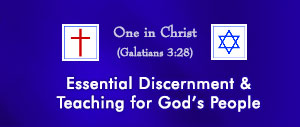A Happy
Purim and
Palm Sunday to you. When you broke your Purim fast this morning, recall the fasting goes with the Jews fasting for three days and nights to petition God for His help to keep them from being annihilated by the royal decree that Haman, the main villain of Purim, had devised. Mordecai advised Queen Esther to beg the king for mercy, but she knew, even for the queen, it could be death to anyone to approach the king without being summoned. They would only be saved if he accepted them by holding out his scepter
(Esther 4:11). And so on the third day of the fast, Queen Esther took courage and approached the king.
By God’s grace and blessing, He had made Esther favored and so the king held out his scepter to spare her and listen to her request. She asked that the king and Haman be invited to a banquet she planned for them. This would be the first instance of deliverance for the Jews after they learned about Haman’s plot to kill them all.
This year the church’s Palm Sunday and Purim are on the same day, and the salvation of haMashiach (the Messiah) is irrevocably tied to Palm Sunday, which celebrates His entry into Jerusalem with great crowds cheering for Him as He rode on the foal of a donkey. It was a great event preordained by God, but even His disciples did not realize it fulfilled prophecy by a prophet of the Old Law (Zechariah/Zecharya 9:9; Matthew 21:1-9; John 12:12-16) – “Rejoice greatly, daughter of Zion! Shout, daughter of Jerusalem! Behold, your King comes to you! He is righteous and has salvation, yet lowly, and riding upon a donkey, upon a colt, the foal of a donkey” (Zechariah/Zecharya 9:9).
Mashiach Yeshua entered Jerusalem in the last week of His life to finalize atonement for mankind with the New Covenant, and so Palm Sunday and Purim would appear to have the common theme of deliverance. But if you know the story of Purim, the holiday makes strange union with Palm Sunday because God delivered His people, but also had them take revenge and much bloodshed on their enemies in ancient Persia.
That is very unlike the forgiveness of Christ, but the bloodshed of Purim is a perfect example of the Old Law’s eye for an eye (Exodus/Shemot 21:23-25; Leviticus/Vayikra 24:17-22). During the first Purim for the Jews in Persia, they killed over 75,000 of their neighbors who hated them, though most of them were likely planning to do the same to the Jews (Esther 9:16). This dynamic very much brings to mind what is happening today with the hatred of Israel and Judaism by Hamas, Palestinians, and Islam, while Israel has been taking vengeance upon the Palestinians of Gaza with large numbers of civilian casualties, further oppression, and largely ignoring serious famine and suffering on Palestinian civilians as they destroyed Gaza and enforced security on the West Back to get to Hamas and keep “peace” with the Palestinian community.
The number God gave for casualties for Purim, 75,000, is interesting because it goes with the gallows that Haman built to hang Mordecai, the Jew who refused to bow down to or honor him. So after Haman learned that Esther only invited him and the king to a banquet, he thought he was greatly honored and was joyful, but when he saw Mordecai at the king’s gate, which was his custom to stay in contact with his adopted daughter, Esther, Haman remembered his hate for Mordecai and so at the suggestion of his wife, Haman build a gallows to hang Mordecai. It was a tower of a gallows, 50 cubits high or 75 feet, higher than a seven story building (Esther 5:9-14).
But when Queen Esther’s banquet came, she revealed to the king her true identity as a Jew and that Haman had schemed to destroy all her people, and so the king had Haman hanged on the gallows he made for Mordecai
(Esther 7:7-10). 75 feet high, and recall over 75,000 Persians were killed by the Jews on Purim. The alignment of numbers is no accident, as
I’ve seen God use numbers often to give more meaning, and here these two 75’s go together to show how God reversed curses and tragedy upon God’s people and brought the evil back upon the enemies’ heads.
And so, for Purim this year, I’m sure many have asked God to reverse their misfortunes and deliver Israel and the hostages that Hamas still holds captive. However, in
comments about this Purim (see Prayer and Laments for Purim), I said Israel and Jews are suffering for their sins and so the situation today is very different than during the first Purim. The Old Law and its
eye for an eye is also not meant for our times. It was superseded long, long ago by the laws of Christ, haMashiach Yeshua, who told God’s people and all the world, now we must forgive everyone and even love our enemies
(Matthew 5:44, 6:12, 18:21-35; Mark 11:25; Luke 6:27-28, 6:37, 11:4, 17:3-4; Romans 12:14-21).
But I’m afraid that many in Judaism, especially in Israel have not learned that lesson and even have much disdain for their true King and God in Mashiach Yeshua. They still cling to an eye for an eye, so may Israel understand that when there is no great deliverance for the Hamas hostages or for Israel on this Purim, they realize their folly and turn to God’s wisdom and grace in Christ. Let it be in the name of Mashiach Yeshua. Amen.


